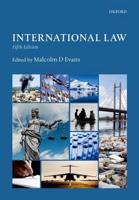Publisher's Synopsis
The 1948 Genocide Convention is a vital legal tool in the international campaign against impunity. Its provisions, including its enigmatic definition of the crime and its pledge both to punish and to prevent the 'crime of crimes', have now been considered in important judgments by the International Court of Justice, the international criminal tribunals and domestic courts. Since the second edition appeared in 2009, there have been important new judgments as well as attempts to apply the concept of genocide to a range of conflicts. Attention is given to the concept of protected groups, to problems of criminal prosecution and to issues of international judicial cooperation, such as extradition. The duty to prevent genocide and its relationship with the doctrine of the 'responsibility to protect' are also explored.









